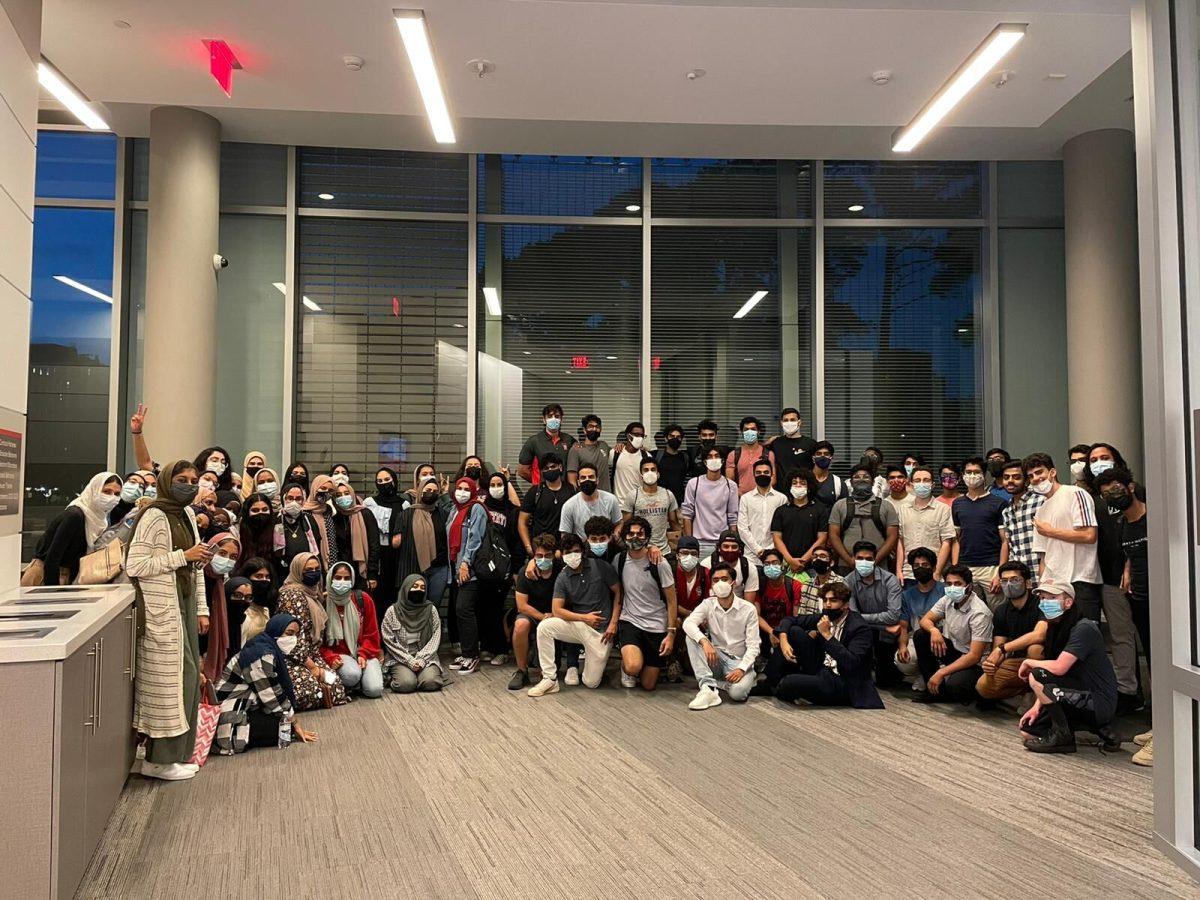
Courtesy of the NC State Muslim Student Association (MSA).
Members of the Muslim community across campus and Raleigh celebrate Ramadan April 1 to May 1, able this year to truly come together as a community after two years of pandemic hesitancy.
Ramadan is the Islamic holy month of prayer and fasting which falls during the ninth month of the Muslim calendar. Muslims believe God first gave the Prophet Muhammad verses of the Quran, the Islamic holy book, during Ramadan.
Ramadan is an opportunity for Muslims to bring greater intentionality, discipline and spirituality into their lives through fasting, prayer, studying the Quran, charity and community building.
Throughout the month of Ramadan, Muslims abstain from all food and drink from dawn to sunset in order to increase their taqwa, or consciousness of God. Each day during Ramadan, Muslims wake up before the sun rises for suhoor, the meal that will sustain them through the day, and fajr, morning prayer. When the sun goes down, they have iftar, the meal that breaks the day’s fast.
After fasting throughout the day, Ramadan nights are alive and active. The Islamic Association of Raleigh, a mosque down the street from NC State hosts regular overnight events that include prayer, meals, reading from the Quran and activities like volleyball. This provides an opportunity for both the individual reflection and communal connection central to Ramadan.
Fasting during Ramadan is one of the five pillars of Islam and is meant, in part, to increase self-awareness and gratitude. Aisha Mahmood, a second year studying genetics, said fasting gives her an opportunity for increased mindfulness throughout the month.
“During Ramadan I’m able to have this routine,” Mahmood said. “I wake up in the morning and then I eat the morning meal and then I pray. I’m able to connect with God that way, and then go to classes, and during class I’m more intentional with what I’m doing. I remind myself why I’m going to class… Even if it’s something small like I’m going to go meet friends, I kind of reframe my intentions.”
This is Mahmood’s first Ramadan away from home, and she said it has been challenging to be unable to spend time and break fast with her family. She said it’s been important for her to have a community on campus to celebrate with.
Mariyah Modan, a second year studying biology and the publicity chair for NC State’s Muslim Student Association, said that much of the association’s planning surrounding Ramadan this year was to build a community for those who were feeling lonely or missing family during the month.
“We live in a mostly white community, and sometimes you start to feel out of place,” Modan said. “This is coming from me, who was born and raised here. There’s a lot of people around us who haven’t grown up here, or they come from different communities, so having the Muslim community at [NC State] and making it welcoming is so important. I would like people to not feel how I do sometimes.”
To that end, the Muslim Students Association has held several recurring events throughout the month. On Tuesdays they reserve a space for girls observing Ramadan on campus to come together to break their fast. This is specifically geared towards those who might otherwise be breaking their fast alone or away from family. On Wednesdays the association has a table in Talley Student Union to give out iftar packs to go, and every Friday morning they hold a gathering on the top of Dan Allen parking deck for fajr prayer after suhoor.
To make it easier for students to break fast and ensure that they have enough food for their morning meal, NC State Dining allows Muslim students to carry out extra meals from dining halls, as well as serving dates which are traditionally eaten to break fasts during Ramadan.
In addition to building new communities through moving away from home, many college students have expanded how they view the traditions of Ramadan as they have gotten older.
“When you’re younger it’s not about the religion, it’s just about the food,” said Zeiad Yakout, a first year student studying engineering. “But as you progress, and especially this year since I’ve been on my own for the most part, it’s really building my awareness and my understanding of not only the month of Ramadan but my religion as a whole. That’s something I’m really thankful for.”
Michael Cruz, a first year studying psychology, converted to Islam in January and is currently experiencing his first Ramadan. Though Cruz expressed being somewhat intimidated by Ramadan at first, he has found great meaning and growth throughout the month so far.
“[Ramadan] gives you a lot of time for introspection,” Cruz said. “It gives you a time to look into yourself and really figure out what you need to focus on, what you need to increase, what you need to stop. And fasting increases your discipline, so it’s like a time to implement good habits and good things. I know when people hear 30 days of fasting it sounds hard and sounds difficult, but it really isn’t. We actually appreciate this month. A lot of people think it’s a struggle, but actually it’s more of a blessing.”